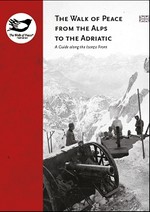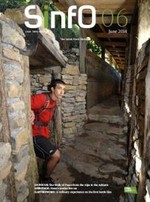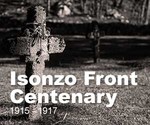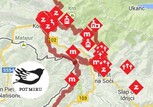Address by Minister of Defence Andreja Katič, Chair of the Slovenian National Committee for the 100th Anniversary of World War I (2014-2018)
In her poem Slovo (Farewell) from 1914, Slovenian folk poet Manica Koman described the feelings of young Slovenian men leaving to the battlefields of World War I. According to historians, some 30,000 of them were deployed at the very beginning. During the following four years, many more left to war, serving in almost all branches of the Austrian Hungarian armed forces. Many of them lost their lives in this tragic shock of war. The war importantly affected life in general and caused anguish even to the part of the population which had not been involved in the battles – elderly people, women and children.
Although during the war Slovenian soldiers defended the interests of a multinational country where they lived, they were well-aware that they were defending Slovenian territory. However, in 1915, a part of this territory, the wonderful landscape next to the Soča (Isonzo) river, from Mount Rombon to the Adriatic Sea, transformed into one of the bloodiest battlefields of World War I. In addition, the beginning of hostilities at the Isonzo Front caused mass migrations of the civilian population.
Being aware that the developments during and immediately after World War I strongly affected Slovenians and their further social, political and cultural fate, it was with pride and responsibility that I assumed the chairmanship of the Slovenian National Committee for the 100th Anniversary of World War I (2014-2018). A hundred years is a long period of time and today, those who would be able to speak about their experiences of this major world-size shock of war are no longer with us. I am pleased, however, that the national committee includes people who use their expertise and, I am certain, their personal beliefs for this studied and historically evaluated memory of the past events to encourage us when we deal with the challenges of the present and the future. I want to use this opportunity to extend my appreciation to my predecessors in this responsible position and thank them for everything that has been done so far to commemorate these anniversaries and to acquaint Slovenians and the general public with the role of the Slovenian nation and territory during World War I. I am certain that the efforts of the Ministry of Defence and other institutions participating in the committee, as well as, of course, the endeavours of the media reflect in the increased interest of the general public for the developments of that stormy period on the Slovenian territory. I and my colleagues in the committee will do our very best that the further remembrance of World War I events will meet if not upgrade the set goals.
The Ministry of Defence plays an important role in cherishing the values that shaped the Slovenian nation as well as in preserving patriotism. The memory of World War I clearly points to the fact that defence is one of the constituent parts of a country and the experiences of Slovenian soldiers thereof an important part of the nation’s military history. During the last year of war, when war participants were completely exhausted both financially and spiritually, Slovenian soldiers developed a rebellion spirit which manifested in three military revolts whose aim was mainly to bring the war to an end and enjoy peace in a new home country.
It is my firm belief that Slovenia and its neighbouring countries, which today enjoy excellent defence and military cooperation, can do even more in providing peace and symbiosis among nations in light of the memory of World War I, which caused such terrible grief. It is also right to take pride in the fact that Slovenian Armed Forces members and the military of our neighbouring countries join efforts in providing peace and decent living conditions in the areas where peace is still to be attained.
World War I has strongly affected world order and has outlined a whole new map of the world. In this period, a very important, or better, crucial moment in the development of Slovenian nation, its national identity and Slovenian history was a successful attempt to form an independent national armed force. In the uncertain conditions of that time, Rudolf Maister, a general and a politician, occupied Slovenian national border in the north with his soldiers, thus enabling the defence of Slovenian Styria region at peace conferences.
However, World War I did not bring enduring peace. Two decades later, Slovenian poet Karel Destovnik Kajuh expressed his bad premonition of a new war in his poem Slutnja (Premonition).
The Second World War began and the occupier condemned the Slovenian nation to destruction. However, Slovenians resisted with all their heroism and joined efforts in national liberation partisan war. This year thus marks the 70th anniversary of victory over fascism and Nazism and the liberation of our homeland, which was a magnificent achievement. The twentieth century, which in the beginning put Slovenians to the test with World War I and in the middle of the century with the Second World War, brought them together again at the end of the century in defence of their independent and sovereign country.
Today, the Republic of Slovenia is an equal member of the European family of countries. I am certain that it can make its unique and characteristic contribution to the remembrance of World War I events and to the reminding that even today, we still have to devote every effort to overcome the differences among people and nations.







